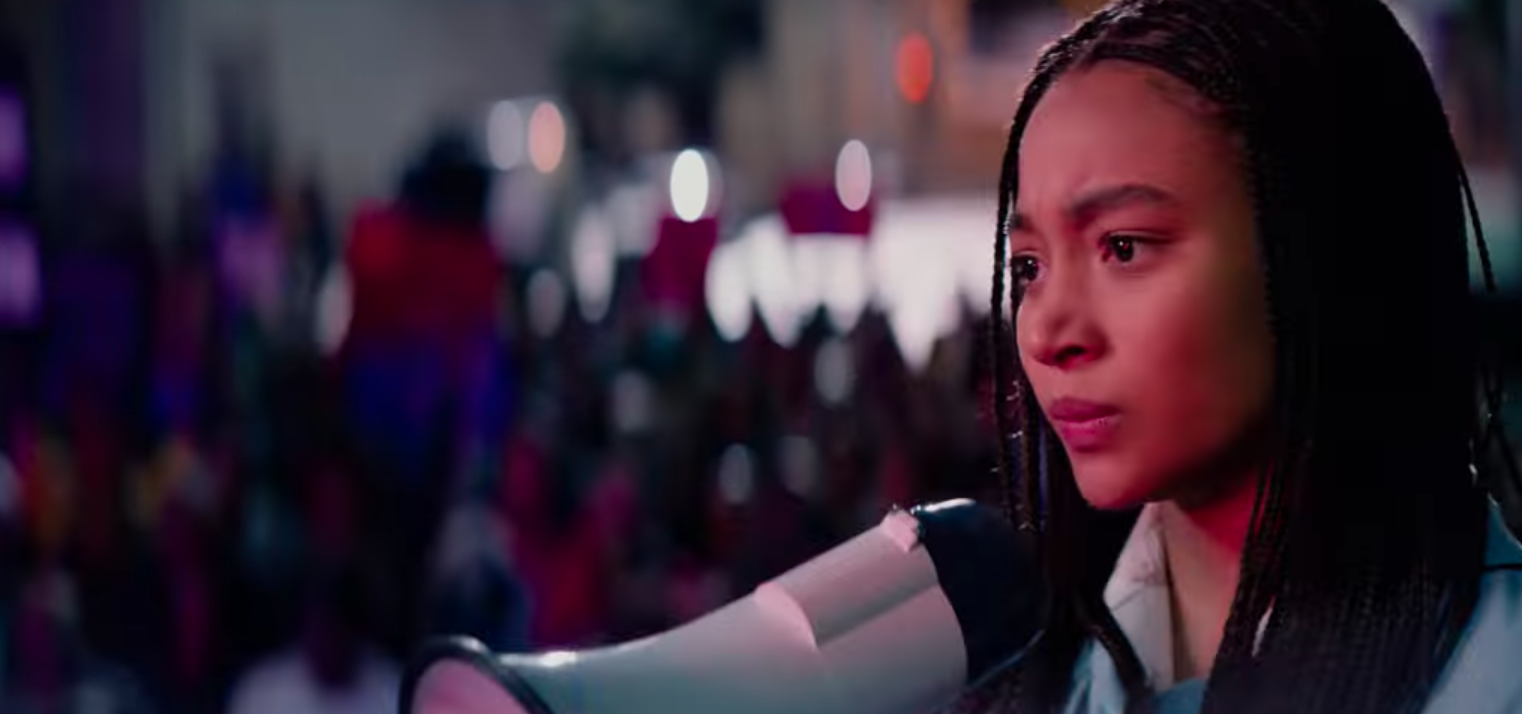90s rapper 2Pac came up with the theory of “THUG LIFE,” which stands for “The Hate U Give Little Infants Fucks Everybody.” 2Pac believed the way society treats young people impacts who they grow up to be. This thought inspired Angie Thomas’ 2017 novel and the upcoming movie directed by George Tillman Jr. — both titled The Hate U Give.
The story follows a 16-year-old black girl whose childhood friend is shot and killed by a white police officer. While fictional, the story resembles similar infamous instances in the recent past.
[Read more: Review: ‘The Guernsey Literary and Potato Peel Pie Society’ has a unique title, but not much else]
The main character, Starr Carter (Amandla Stenberg), attends a primarily white private school but lives in Garden Heights, a fictional black neighborhood. Starr reconnects with her childhood friend, Khalil (Algee Smith), at a party in the neighborhood. Khalil offers to drive her home, when a police officer pulls them over for a seemingly routine traffic stop. Khalil is asked to exit the vehicle, and when he reaches for his hairbrush on the car seat, the officer shoots and kills him.
The rest of the story follows Starr, who has to decide if she should tell Khalil’s story and risk repercussions from the drug dealers Khalil worked for. Eventually, Starr does find her voice and speaks up against the injustice in her neighborhood, especially related to abusive police officers and gang violence. The movie is just as much about police violence as it is about Starr finding herself.
Starr makes for a compelling and inspirational main character. The storyline was more involved than I first anticipated. It centered around racism, but also incorporated blackness, protest and the idea of being truthful to yourself. The movie kept me interested the entire time. It was funny, emotional and heart wrenching — not to mention the jaw-dropping final scene.
In the end, there isn’t any real justice for the police officer who killed Khalil — but that’s what happens in real life all too often. Tillman expertly portrays the fear many black communities face everyday but the movie is fictional, and it would have been more powerful to tell a real-life story of someone who has been unfairly killed by a police officer. But whether fact or fiction, the message is important all the same.
The Hate U Give emphasizes that it’s hard for white people to understand struggles of the black community. But the movie makes it easy to recognize the frustration so many black people experience on a daily basis. The audience is moved to sympathy, sadness, anger — emotions that cause awareness and action. In a country still filled with hatred and racism, stories like this — real or fictional — will always be relevant.
3/4 Shells.



